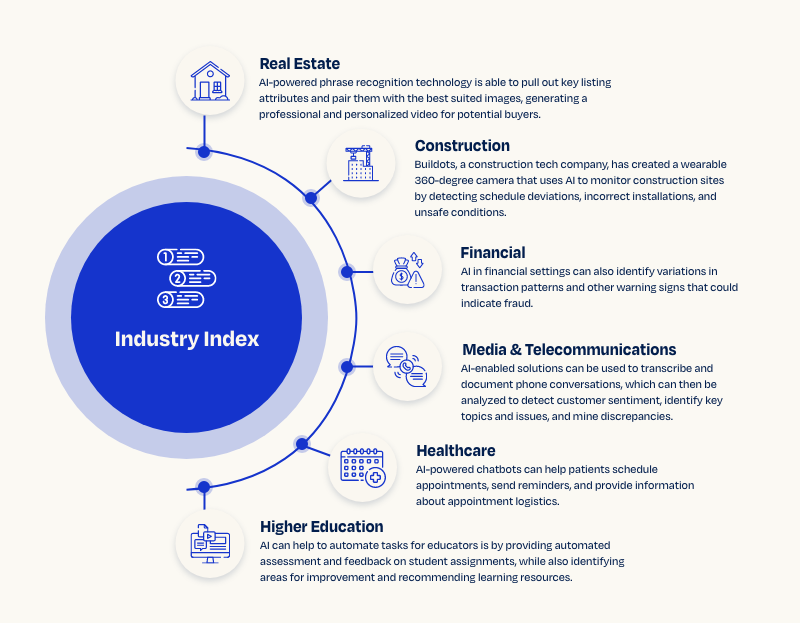It’s no secret that Conversational AI has become a familiar part of our everyday lives. With the rise of virtual assistants like Siri, Alexa, and Google Assistant, the way that we interact with technology has become more personalized than ever before. But the benefits of AI go far beyond simple voice commands and smart speakers; Conversational AI is a tool that can optimize efficiency in a wide variety of industries and contexts, from customer service to healthcare to education.
Outcomes & Benefits From Business Process Perspective
Conversational AI systems, also known as chatbots or virtual assistants, are designed to provide personalized communication with users. For some, their first thought of AI might include Siri announcing the weather, or Alexa updating their shopping list. However, what many people don’t realize is that the capabilities of Conversation AI go much deeper and can be the key to optimizing business operations. AI can improve the efficiency, effectiveness, and personalization of communication with customers, employees, and stakeholders.
Industry Index
As AI technology continues to advance, businesses across a broad range of industries are discovering innovative ways to integrate it into their operations to enhance processes and productivity. As market offerings of AI continue to expand, almost every industry is finding new and unexpected ways to leverage new technologies. The capabilities of AI are limitless; here are just a few of the most unique and surprising real-world use cases of AI.

- Real Estate: Online real estate platform Compass is using AI to create custom listing videos for clients in just a few clicks. Their AI-powered phrase recognition technology is able to pull out key listing attributes and pair them with the best suited images, generating a professional and personalized video for potential buyers.
- Construction: AI produces a multitude of benefits for construction and manufacturing companies. From increasing safety to optimizing work schedules, AI in the construction industry has proven its value. Buildots, a construction tech company, has created a wearable 360-degree camera that uses AI to monitor construction sites by detecting schedule deviations, incorrect installations, and unsafe conditions.
- Financial: According to Insider Intelligence’s AI in Banking report, 80% of banks are aware of the benefits of Conversational AI in their industry. It enables frictionless, 24/7 customer interactions, lowers the possibility of human error, and increases customer satisfaction for a multitude of use cases, including but not limited to bank transfers, closing and opening accounts, card replacements, and password resets. Aside from these advantages, AI in financial settings can also identify variations in transaction patterns and other warning signs that could indicate fraud.
- Media & Telecommunications: Businesses can leverage AI to monitor and analyze audio and video data to report findings in real time. Call centers, for example, can utilize AI-enabled solutions to transcribe and document phone conversations, which can then be analyzed to detect customer sentiment, identify key topics and issues, and mine discrepancies. Additionally, AI in customer care centers can help bolster real human interaction by managing mundane tasks and helping find a solution in a fraction of the time that it would take a real person.
- Healthcare: AI-powered chatbots can help patients schedule appointments, send reminders, and provide information about appointment logistics. Conversational AI tech can also provide patients with information on health conditions, treatment options, and self-care instructions.
- Higher Education: By leveraging conversational AI, educational institutions can provide more personalized and efficient learning experiences, improve student outcomes, and reduce the workload on teachers and administrative staff. One way that AI can help to automate tasks for educators is by providing automated assessment and feedback on student assignments, while also identifying areas for improvement and recommending learning resources.
Power of Amelia AI
Amelia AI, Bluetext’s partner, and client of brand services, has established itself as an enterprise leader in Trusted AI by consistently providing reliable and secure AI solutions. Amelia uses a combination of natural language processing (NLP), machine learning, and cognitive reasoning to understand the intent of user requests and provide relevant responses. Unlike traditional chatbots, Amelia learns from every interaction, evolving and improving its understanding and responses over time in order to better all future interactions.
One of the key advantages of Amelia is its ability to integrate with existing enterprise systems, enabling seamless communication across departments and workflows. Amelia can also be deployed across multiple channels, such as web, mobile, and voice, providing a consistent and personalized experience to end users. Amelia is able to optimize business efficiency across all types of industries by streamlining processes and elevating customer service and experience. For example, Amelia AI was hired to fill the role of Virtual Engineer for CGI clients, specifically handling incident resolution and ticket management. Through the engagement, Amelia helped CGI reduce client outages by 30 percent.

Amelia also paired up with Visionworks to transform their customer experience operations by operationalizing the process to schedule eye exam appointments, provide order status updates, answer store-related questions, and more. Amelia represents a significant step forward in the development of conversational AI, providing organizations with a powerful tool to improve customer engagement, reduce costs, and drive innovation.
The Future of AI Optimization
As natural language processing and machine learning algorithms improve, AI technology will become increasingly adept at understanding and responding to human speech in more complex and nuanced ways. Companies that have successfully incorporated AI into their business operations have proven that they can automate routine tasks, reduce operational costs, and enhance customer satisfaction and retention. Beyond improving processes, AI technology can lend valuable insights into customer behavior and preferences, ultimately improving and personalizing their experience. With the potential to transform nearly every aspect of business, it’s no wonder that AI is becoming an increasingly popular technology for companies to adopt.